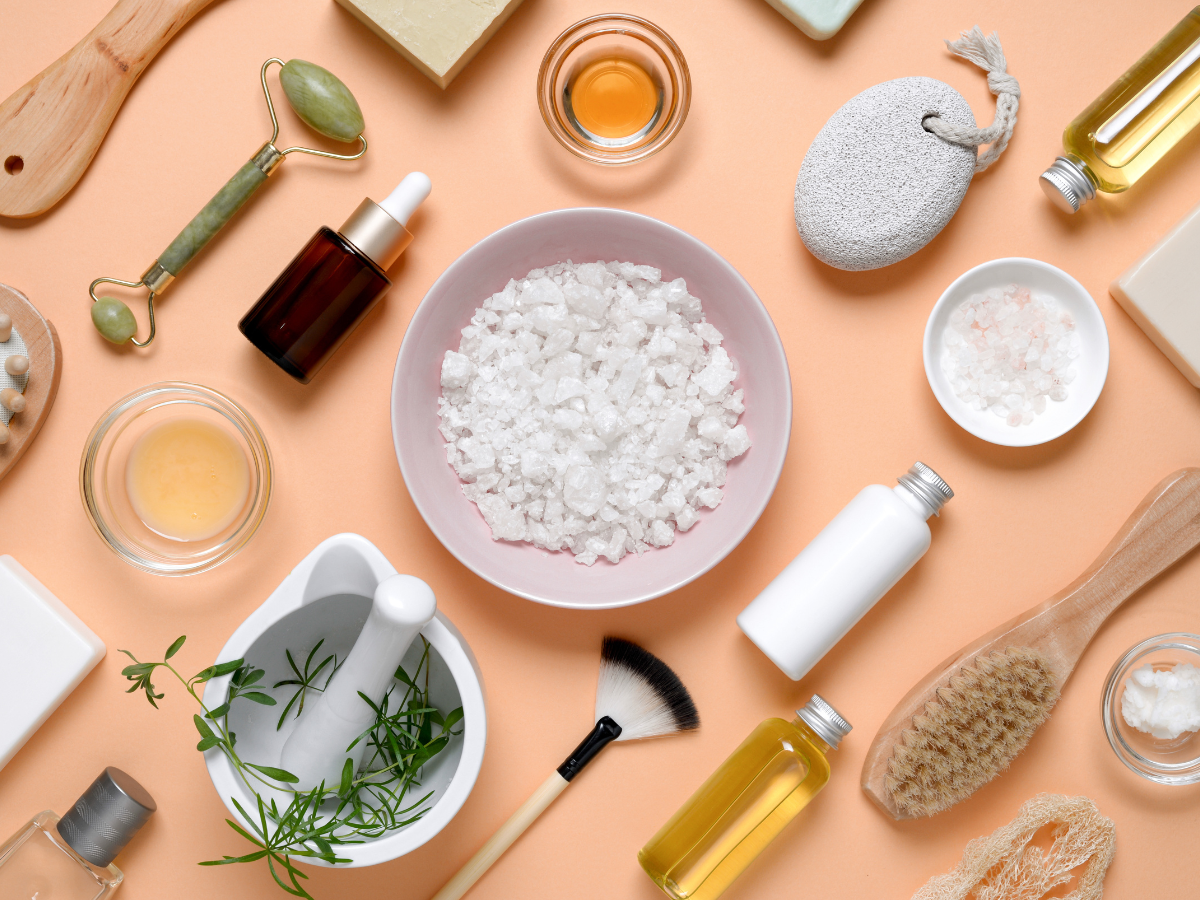Best Ingrown Hair Serum: Top Solutions for Bump-Free Skin
Best Ingrown Hair Serum: Top Solutions for Bump-Free Skin Ingrown hairs can be a painful and frustrating side effect of...

Chemical ingredients have become essential components in modern skincare, offering powerful solutions to common concerns like acne, hyperpigmentation, fine lines, and uneven texture. Skincare tips using chemical products can help you maximize the benefits of active ingredients like AHAs, BHAs, retinoids, and Vitamin C, making your skincare routine more effective at targeting deep skin issues.
In this guide, we’ll explore how to properly use chemical products in your routine, focusing on exfoliation, hydration, and anti-aging treatments that help you achieve clearer, smoother skin.
Chemical exfoliants work by dissolving the bonds between dead skin cells, helping them shed more easily and revealing fresher, smoother skin underneath. Unlike physical scrubs, which can sometimes damage the skin, chemical exfoliants work deeper into the skin, treating clogged pores, rough texture, and hyperpigmentation.
How to Use Chemical Exfoliants:
Tip: AHAs and BHAs can make your skin more sensitive to the sun, so apply sunscreen during the day.
Learn more about the benefits of chemical exfoliants for clearer skin.
Retinoids, derived from Vitamin A, are some of the most effective chemical ingredients in skincare. They speed up cell turnover, which helps unclog pores, smooth fine lines, and improve skin texture. Retinoids are also great for treating acne, hyperpigmentation, and signs of aging.
How to Use Retinoids:
Tip: Apply a pea-sized amount of retinol to avoid irritation, and always follow up with a hydrating moisturizer.
Learn more about how retinoids work to boost skin clarity and reduce signs of aging.
Acne-prone skin can benefit significantly from chemical skincare products, especially those containing ingredients like salicylic acid, benzoyl peroxide, and sulfur. These chemicals help reduce inflammation, unclog pores, and kill acne-causing bacteria.
How to Use Acne Treatments:
Tip: Be cautious not to overuse acne treatments, as this can lead to skin irritation and dryness.
Learn more about how salicylic acid and benzoyl peroxide treat acne and blemishes effectively.
Vitamin C is a powerful antioxidant that protects the skin from free radical damage, brightens dull skin, and fades dark spots caused by sun exposure or acne scars. It also helps boost collagen production, making it an essential ingredient in any anti-aging skincare routine.
How to Use Vitamin C:
Tip: Store Vitamin C products in a cool, dark place to prevent them from oxidizing and losing effectiveness.
Learn more about how Vitamin C brightens skin and protects it from environmental damage.
While chemical exfoliants and retinoids work to clear and smooth the skin, it’s essential to maintain hydration to protect your skin barrier. Moisturizers containing chemicals like hyaluronic acid, peptides, and ceramides help lock in moisture, repair damaged skin, and prevent dehydration.
How to Use Chemical-Based Moisturizers:
Tip: Layer hyaluronic acid under your moisturizer for an added boost of hydration, especially if your skin feels dry after using chemical treatments.
Learn more about the importance of moisturizing with chemical ingredients.
When using chemical products, it’s important to be consistent to see long-term results. However, starting slow is crucial, especially if you’re new to chemical exfoliants or retinoids. Overuse of these products can lead to irritation, dryness, or even breakouts as your skin adjusts.
Tip: If you experience irritation, reduce the frequency of chemical products and focus on moisturizing and repairing your skin barrier.
Learn more about the importance of consistency and patience in a skincare routine.
When using chemical products like AHAs, BHAs, and retinoids, your skin becomes more sensitive to the sun’s harmful UV rays. Failing to protect your skin with sunscreen can lead to increased pigmentation, irritation, and even skin damage.
Tip: Opt for lightweight, non-comedogenic sunscreens that won’t clog pores or leave a white cast on the skin.
Learn more about the importance of sunscreen in protecting your skin from UV damage.
Incorporating chemical products into your skincare routine can lead to clearer, smoother, and more radiant skin. Whether you’re using chemical exfoliants like AHAs and BHAs, retinoids for anti-aging, or Vitamin C for brightening, the key is to use them consistently and wisely. With the right balance of active ingredients and hydrating products, you can achieve healthy, glowing skin.
Start your journey to clear, radiant skin with these skincare tips using chemical products today!
Best Ingrown Hair Serum: Top Solutions for Bump-Free Skin Ingrown hairs can be a painful and frustrating side effect of...
Best Serum for Discoloration: Top Products to Brighten Skin Skin discoloration, whether caused by sun exposure, acne scars, or aging,...
Dead Skin Cleanser: The Best Cleansers for Dead Skin Cells Exfoliating dead skin cells is key to maintaining a smooth,...